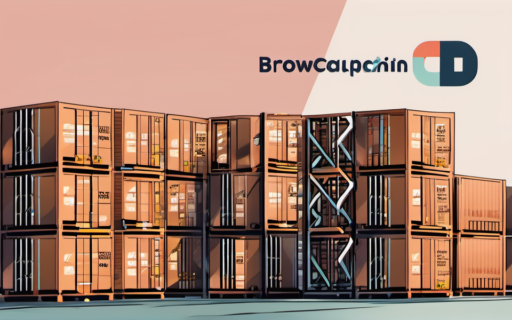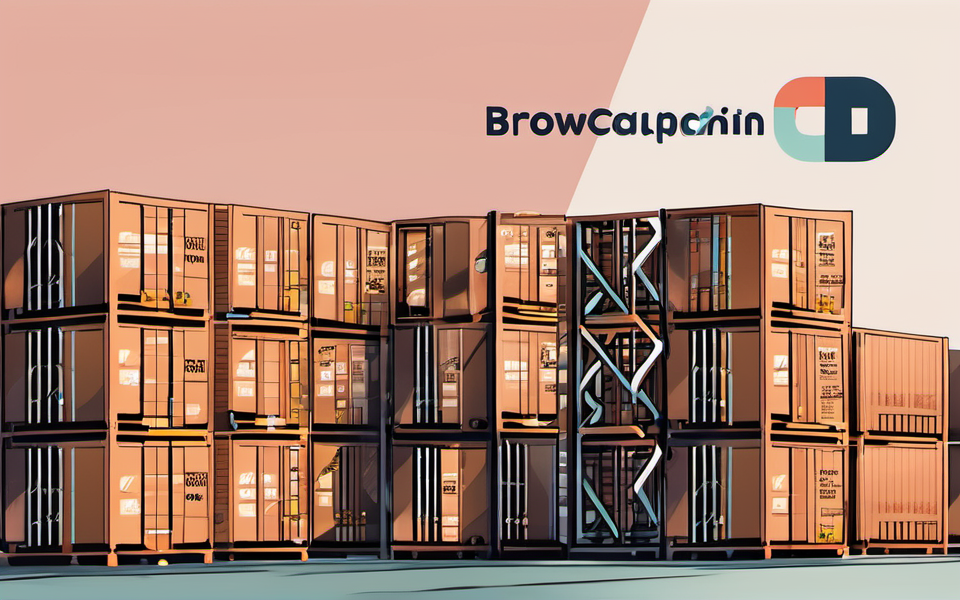Imagine a world where every single item you buy, from your morning coffee to your new phone, has a digital record of its entire journey. No more mystery ingredients, no more counterfeiting, just a clear, transparent, and secure trail from the farm to your doorstep. That’s the promise of blockchain technology, and it’s already revolutionizing how we manage and understand complex global supply chains. But how does this technology actually work, and what are its benefits for businesses and consumers alike? Let’s dive in.
The Power of Decentralized Data: A New Era for Supply Chain Visibility
Blockchain, in its simplest form, is a shared and immutable ledger that records transactions between multiple parties. It’s like a digital diary that everyone involved in a transaction can access, but nobody can alter, ensuring the information is always accurate and secure. Now, picture this applied to supply chains:
Tracking Goods From Source to Shelf
Imagine tracking a shipment of coffee beans. Every step, from harvesting to roasting to shipping, is documented on the blockchain. This creates a completely transparent system where businesses and consumers can trace the origins of their products, fostering trust and accountability. No more worrying about whether those ethically sourced beans actually came from a sustainable farm!
The magic of blockchain in supply chain management lies in its unique features:
- Transparency: All stakeholders can access the same information, eliminating information silos and allowing for real-time tracking.
- Security: The distributed nature of blockchain makes it incredibly resistant to tampering and fraud.
- Efficiency: Streamlined processes eliminate the need for multiple manual checks and approvals, leading to faster and more efficient operations.
Benefits for Every Stakeholder:
- Businesses: Increased visibility, reduced costs, minimized risks, enhanced trust and reputation, and better supply chain optimization.
- Consumers: Assurance of product authenticity, traceability of origin, and increased confidence in the quality of goods.
- Regulators: Easier enforcement of regulations and quicker identification of potential issues in the supply chain.
Real-World Examples:
Several businesses are already harnessing the power of blockchain for supply chain management.
- Walmart uses blockchain to track food products and identify potential contamination sources.
- Maersk, a shipping giant, utilizes blockchain for secure and efficient documentation of goods movement.
- Nestle leverages blockchain for transparent traceability of coffee beans from their source to your cup.
Beyond Tracking: The Impact of Smart Contracts
Blockchain technology isn’t just about recording data; it also enables automated processes through smart contracts. Imagine an automated system where, for example, payment for a shipment is automatically triggered once the goods arrive at their destination.
Automated Operations & Seamless Transactions:
Smart contracts essentially eliminate the need for intermediaries and automate critical processes, reducing manual intervention and errors. Think about how much time and resources businesses currently invest in verifying documents and tracking payment statuses. Blockchain and smart contracts could automate these processes, bringing unprecedented efficiency and cost-savings to the table.
Streamlining Complex Supply Chain Operations:
Consider this: Imagine an auto parts manufacturer using smart contracts to automatically manage the ordering and delivery of components based on real-time inventory levels and production schedules. No more delays, no more guesswork, just a smooth, predictable flow of parts. This streamlines the entire supply chain process, eliminating waste and maximizing efficiency.
Enhancing Collaboration:
Smart contracts can even facilitate smoother collaboration among multiple stakeholders in the supply chain. For instance, they can automatically enforce contractual agreements and settle disputes, leading to faster dispute resolution and stronger partnerships.
Breaking Barriers: Blockchain for Sustainable Supply Chains
Beyond its obvious benefits for efficiency and transparency, blockchain technology holds immense potential for creating more sustainable supply chains.
Tracing Sustainability Credentials:
Imagine using blockchain to trace the entire journey of sustainably sourced materials, like bamboo furniture or recycled textiles. Consumers can easily verify the product’s environmental impact, giving them confidence in making sustainable purchasing decisions.
Ensuring Responsible Sourcing:
Blockchain technology can enable verification of ethical and responsible practices throughout the supply chain. Imagine tracking fair-trade coffee from the farms to your local cafe, guaranteeing the farmers receive fair compensation and ensuring the coffee beans were sourced ethically.
Building Trust and Transparency:
Blockchain offers a powerful tool for building trust and accountability within supply chains, enabling businesses to proactively address environmental and social concerns and earn the loyalty of ethically conscious consumers.
Key Takeaways:
- Blockchain technology offers unprecedented transparency, security, and efficiency for managing supply chains.
- Smart contracts automate processes and eliminate inefficiencies, leading to significant cost-savings and improved performance.
- Sustainability is a key area where blockchain technology can revolutionize practices and ensure ethical sourcing.
As we enter a new era of digital supply chain management, blockchain’s potential is limitless. By embracing this powerful technology, businesses can optimize operations, increase transparency, and contribute to a more sustainable future. Ready to dive into the world of blockchain and explore its transformative power for your business?






